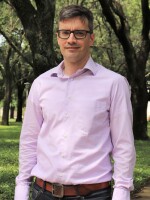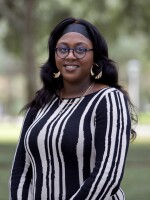This week marks the start of another season of baseball for the Tampa Bay Rays. They’ll face the Toronto Blue Jays in their first home series at Tropicana Field, the stadium that’s nearing the end of its residency in downtown St. Petersburg.
A world-class development that will “fuel our economy” for decades to come is how St. Petersburg Mayor Ken Welch described the multibillion-dollar plan to transform Tropicana Field and the sea of asphalt parking lots surrounding it.
"If you look out over the next 10, 15, 20 years, we have so much more confidence that this is going to be a great place for a ballpark, and for a neighborhood that fits that ballpark," said Rays co-president Matt Silverman, who spoke recently on the team's podcast about the redevelopment, "Here to Stay."
But it’s not a done deal just yet.
The heart of the current debate isn’t so much about sports, it’s about money. Specifically how much the city and Pinellas County and the Rays ownership will invest.

Tampa Bay Times reporter Colleen Wright joined Florida Matters to explain the next steps in the long process of building a new stadium for the Rays and redeveloping the land around it.
Wright said the $1.3 billion price tag for the stadium is being split by the city of St. Petersburg, Pinellas County, and the Rays, with the city and county picking up about $600 million of the cost. The city will also sell 65 acres of public land to the Rays for $105 million. Critics of the deal say the land is worth a lot more.
"This project is not happening without official votes from the St. Petersburg City Council and the Pinellas County Commission. It's not clear which vote would come first. The city side of this is more complicated because of the sale of that land," said Wright.
"I think more people are just waiting on the details to come through to really understand and be comfortable with voting on this because it's a big deal. It'll be the biggest decision, maybe ever, in the history of St. Petersburg."

Florida Matters also spoke with Ron Diner from No Home Run, a group of Pinellas County residents who oppose the stadium deal.
"I think a lot of people like baseball, I go to some of the games, my son's got season tickets, and I go with him. And I've got a grandson that I go to watch play baseball," said Diner.
"But it seems to me that if you are a city council member, and they are the people that have to make the final decision (on) whether to do or not do this particular deal ... their obligations are to do what's in the best interests of the people in the community. And baseball may or may not fit in there somewhere."
"In terms of the fact that the community is going to be investing money into the transaction, there's no demonstrable return that's going to come back to the community," Diner added.
"And when you think about all of the other priorities that, say, like a city of St. Petersburg has, it should be getting a fair deal, it should be getting a reasonable return on its investment in order to make sure that it can meet the other priorities that exist in the community."
Listen to the full conversation using the audio player above.
Florida Matters reached out to the Tampa Bay Rays for comment but they did not respond by our production deadline.





